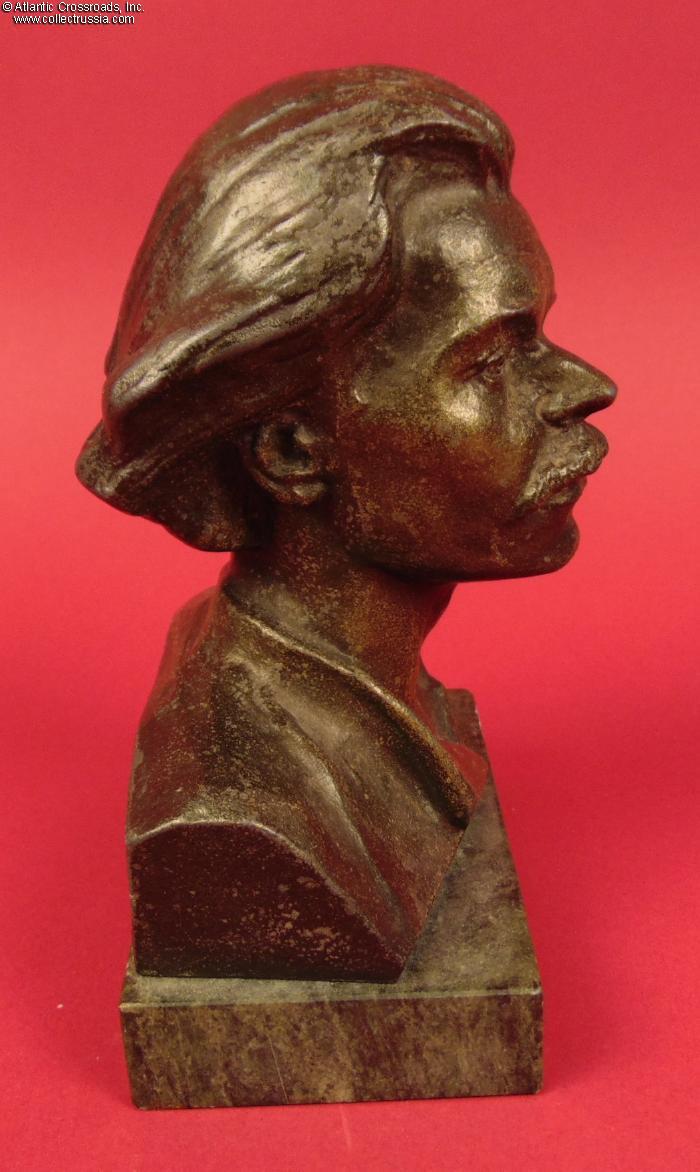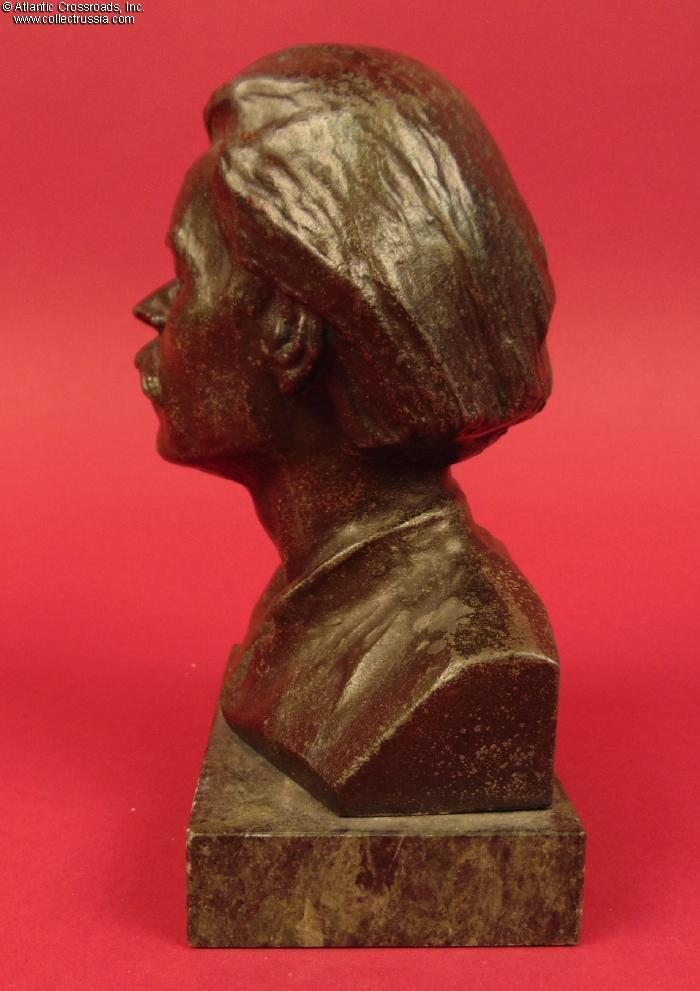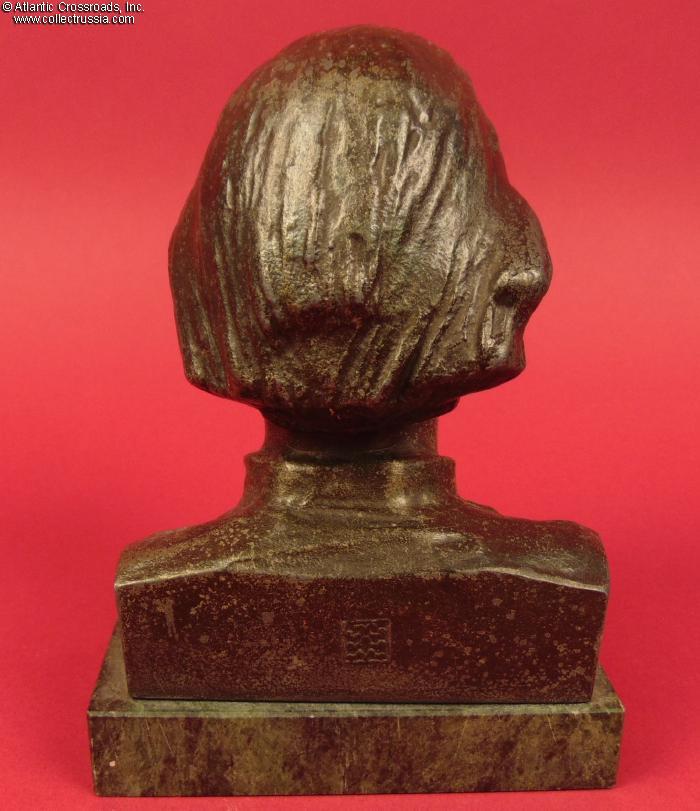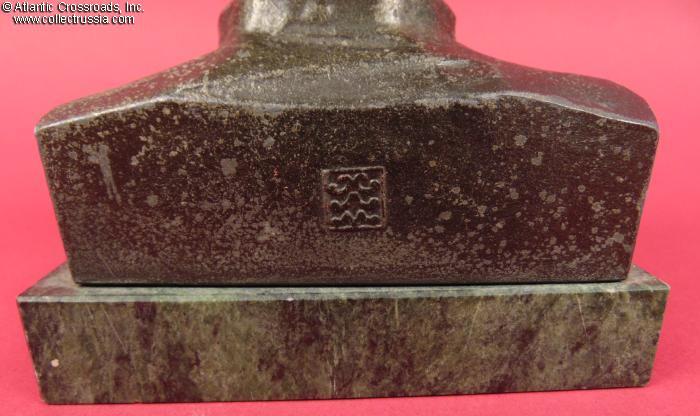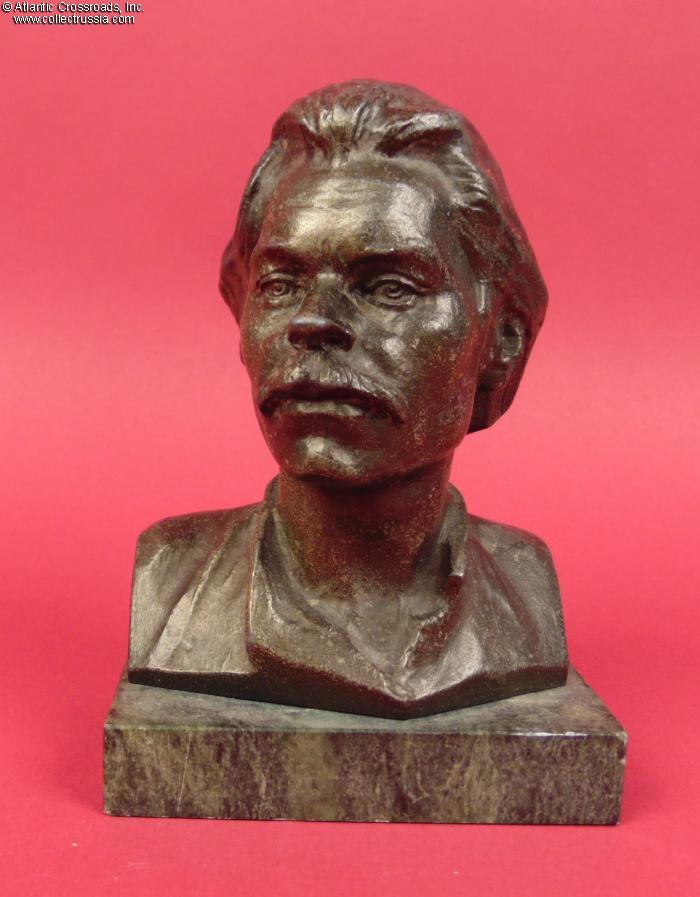
Bust of the famous Russian Soviet writer, poet, playwright Maxim Gorky, cast in heavy Silumin alloy and munted on a marble plinth, circa 1960s-70s.
Measures: height: 14 cm (5 ½"); plinth: 10 cm (4") x 6 cm (2 3/8") x 2 cm (3/4"). Weight: 1 lb. 11 oz.
The Silumin alloy of the bust is coated with a black finish to make it look like cast iron, a common technique of the period when Silumin
figurines became very popular in the Soviet Union.
The back of the bust features the foundry mark. Of special note is the exceptional likeness to young Gorky which the sculptor created in this
bust, the blown-back hair emphasizing Gorky's youthful
aspirations.
Please note that the coin in the final photo is for size reference.
Measures: height: 14 cm (5 ½"); plinth: 10 cm (4") x 6 cm (2 3/8") x 2 cm (3/4"). Weight: 1 lb. 11 oz.
The Silumin alloy of the bust is coated with a black finish to make it look like cast iron, a common technique of the period when Silumin
figurines became very popular in the Soviet Union.
The back of the bust features the foundry mark. Of special note is the exceptional likeness to young Gorky which the sculptor created in this
bust, the blown-back hair emphasizing Gorky's youthful
aspirations.
Please note that the coin in the final photo is for size reference.
Excellent condition. Very minor wear to the black finish throughout the bust is very attractive and adds to the perception of its age and authenticity.
Gorky had a chronic respiratory condition. Having tried the super-mild warm climate of Capri, a small island near Naples, Italy, he spent
most of his time there and wrote some of his best novels there, alternating with political activity and propaganda of Socialism. Among
others, he met there with Lenin. Twice, in 1908 and 1910.
After the revolution in Russia and despite his support of Socialism, he preferred to keep the new blood-thirsty regime and himself separate,
continuing to spend most of his time on Capri, surrounded by literary, artistic and leftist political celebrities of the time. The world-
famous Russian bass opera singer Fyodor Shalyapin, who also lived on Capri at the time, was his close friend.
After several years spent in the USA, Germany and then again in Italy, Gorky returned to Soviet Russia in 1928. There, his humane outlook on
life unavoidably clashed with both Lenin's and Stalin's policy of Red Terror. But they needed Gorky as an icon, so he needed to disappear
"naturally". At first, "caring" about Gorky's poor health, they exiled him to a dacha (summer cottage) in the Crimea and would not
let him leave.
Only in May of 1936 Gorky was suddenly allowed to go to Moscow where his two granddaughters had fallen suddenly ill with the flu.
Just a few days later, on June 1st Gorky suddenly fell ill with the flu himself, which quickly exacerbated into a heart condition. On the
surface, all very natural. However, the writer himself did not believe in natural causes of his condition. He was convinced that his son,
who had died under similar circumstances two years prior, had been poisoned.
Despite the show of putting Gorky in a top-notch facility where, some short time before, Lenin had been treated as well, Gorky's
condition continued to worsen and on June 18th he passed away.
Nowadays they prefer polonium. What was their poison of choice a hundred years ago, wouldn't you like to know?..
$90.00 Add to cart


